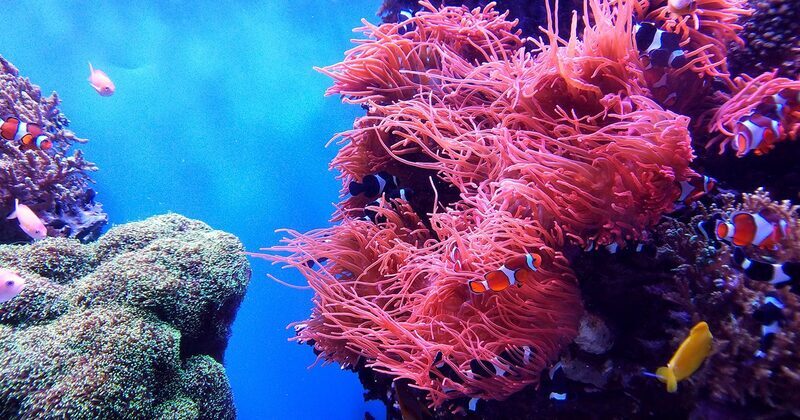
EU adopts new rules to significantly cut packaging waste with re-use targets
The European Union has formally adopted a regulation on packaging and packaging waste. The new ...

The United Nations Environment Program (UNEP) joined hands with The Ocean Agency to launch Glowing Glowing Gone, a creative awareness campaign that draws attention to coral fluorescence due to climate change.
Coral fluorescence, or “glowing” coral, is a last line of defense before coral dies and bleaches. The Ocean Agency worked with Pantone and Adobe to turn the warning colors of glowing coral into three official Pantone colors, to inspire action that everyone can use.
Through Glowing Glowing Gone, The Ocean Agency hopes to garner public support to inspire policy and funding to conserve coral reefs and save an ecosystem on which the entire planet depends.
Why coral reefs are important for eco-system, food security?
Richard Vevers, Chief Executive Officer of The Ocean Agency, said in an interview with UNEP that coral reefs support a quarter of all marine life—an estimated 1 to 9 million species. They are like ‘underwater cities’.
These cities dwarf those built by humans and are critically important in the life cycle of so many species—from the smallest to the largest—acting as nurseries, sources of food, cleaning stations and breeding grounds, he said.
Coral reefs provide half a billion people with food security and livelihoods. They are essential to sustaining healthy fisheries, which is the number one protein source for 3 billion people worldwide, he added.
Additionally, thanks to coral reefs, fisheries and tourism generate hundreds of billions of dollars per year for the global economy.
They also protect coastlines from increasing damage by buffering shorelines against waves, storms and floods, which helps to prevent loss of life, property damage and erosion, he added.
Coral reefs are critically important ecosystems. In fact, coral reefs support more life per hectare than virtually anywhere on the planet, he underlined.
Overfishing, coastal development and pollution are all major threats to coral reefs. However, the largest threat to reefs is now climate change.
The ocean has absorbed over 93 per cent of the heat generated by climate change. This puts coral reefs directly in danger, as they are the ecosystems most vulnerable to climate change.
If reefs disappeared, thousands of the world’s fish species would be left without nurseries, breeding grounds, food sources, protection from predators and more, Vevers warned.
In turn, coastal communities would be left without the main food and income source they need to survive. In addition, tourism—the major source of income for these communities—would plummet. We simply cannot afford to lose coral reefs. Aside from impacting billions of people who depend on them, the loss of coral reefs would mark a dangerous moment in our history: the moment we start losing not just single species, but entire global ecosystems on which we all depend.
Many scientists and organizations around the world are working to conserve coral reefs using several methods, he said.
Marine protected areas and conservation areas are being created to limit local threats to reefs such as fishing and pollution.
This is especially critical in areas which are naturally less vulnerable to climate change.
Restoration projects are underway around the world to help reefs recover and improve their ability to reseed surrounding reefs.
Helping to raise awareness of the coral reef crisis and the need for action is one of the best ways that individuals can help protect reefs. Due to a lack of awareness, coral reef conservation is rarely considered a priority issue, so public support for action can make a huge difference.
The European Union has formally adopted a regulation on packaging and packaging waste. The new ...
Inaugurating the Abydos Solar Power Plant in the Upper Egypt governorate of Aswan represents a ...
Businesses that fail to adapt to climate risks like extreme heat could lose up to ...


اترك تعليقا